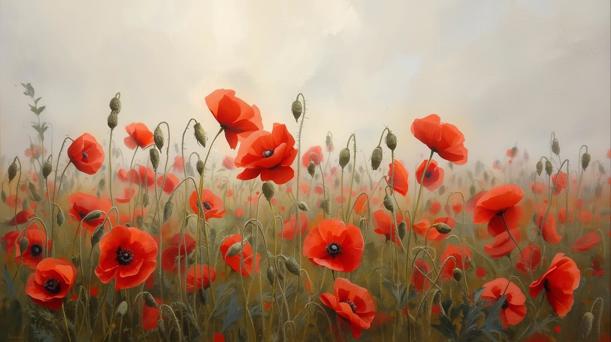Remembrance Day: Reflecting on Leadership in Times of Challenge
As we approach Remembrance Day on 11th November, we pause to remember those who served and sacrificed. The two-minute silence at the eleventh hour of the eleventh day of the eleventh month is a moment of profound reflection, not just on loss, but on the extraordinary qualities of leadership that emerged during humanity's darkest hours.
Field Marshal William Slim once observed: "Leadership is of the spirit, compounded of personality and vision; its practice is an art." His words, forged in the crucible of wartime command, remind us that leadership transcends technical skill or strategic acumen. It is something deeper, something that draws on the very essence of human character.
The Weight of Command
The leaders of wartime Britain and the Allied forces carried a burden almost impossible to comprehend. Every decision, every order, every strategic choice affected thousands of lives. Commanders knew that their words would send men and women into danger, that their judgments would determine who would return home and who would not.
This wasn't abstract decision-making. These leaders looked into the faces of those they commanded. The gravity of this responsibility shaped how they led. It demanded honesty about the challenges ahead, required them to be present with their people, and to demonstrate through their own conduct the standards they expected. Leadership was not a privilege to be enjoyed but a duty to be fulfilled.
Courage and Service
Perhaps no quality defined wartime leadership more than courage - not the absence of fear, but the ability to function despite it. These leaders made choices knowing they might be wrong, understanding that hesitation could prove as costly as error, accepting that they would carry the consequences of their decisions for the rest of their lives.
At the heart of this courage was an ethos of service. Leaders at every level understood that their role was not about personal glory or advancement. It was about something far greater: the protection of freedom, the defence of values, the welfare of those they led. Personal comfort was secondary to the mission. Leaders earned respect not through rank alone but through demonstrated commitment to those they led, proving time and again that they would never ask of others what they were unwilling to do themselves.
Unity and Resilience
Wartime leadership created unity from diversity. People from different backgrounds, different regions, different walks of life came together with a shared sense of purpose. Leaders forged this unity through clear communication, recognition of each person's contribution and building teams where every role mattered. They understood that strength came not from uniformity but from bringing together different skills, perspectives and experiences towards a common goal.
The leaders we remember on this day also demonstrated extraordinary resilience. They faced setbacks and circumstances that would have broken lesser individuals, yet they endured. This resilience wasn't about ignoring hardship but about acknowledging reality whilst refusing to be defeated by it - finding meaning in struggle, drawing strength from shared purpose and maintaining faith in ultimate success even through the darkest moments.
Leadership Today
As we stand in that moment of silence on Remembrance Day, honouring those who served and those who led them, we might reflect on what these examples of leadership mean for us today.
The contexts we face may be entirely different, the stakes incomparable, yet the fundamental questions of leadership remain constant. How do we carry responsibility for others with appropriate gravity? How do we find courage to make difficult decisions in uncertain times? How do we lead with genuine service rather than self-interest? How do we create unity from diversity? How do we endure through challenges whilst maintaining our humanity and our values?
These are not historical questions. They are the questions every leader must answer, in whatever sphere they lead. Responsibility, courage, service, unity and resilience - these are principles demonstrated by those we remember on 11th November.
A Commitment to Remember
Remembrance Day asks us to honour the past, but it also invites us to carry forward the best of what that past teaches us. The leaders we remember understood that leadership is not about position or power. It is about character. It is about the willingness to serve something greater than oneself.
As we observe the silence, we remember not just the sacrifice, but the qualities of leadership that sustained people through unimaginable challenge. We remember that leadership, at its finest, is indeed "of the spirit" - a call to be the best version of ourselves in service of others.

Keep up-to-date on the latest leadership and management tips by signing up to our weekly blog here